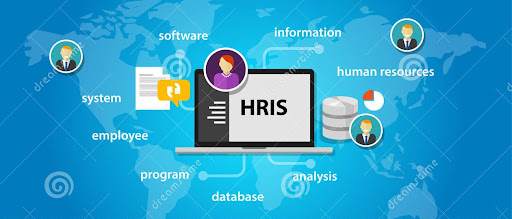 The human resource function of the company is changing very fast, reacting to a changing social and firm environment and rapidly evolving information technologies. The social and company environment puts pressure on HR professionals to give services of higher quality, faster, and seamlessly connected with other corporate functions.
The human resource function of the company is changing very fast, reacting to a changing social and firm environment and rapidly evolving information technologies. The social and company environment puts pressure on HR professionals to give services of higher quality, faster, and seamlessly connected with other corporate functions.
The Human Resource Information System has very humble historical origins.
Introduction to HRIS
HRIS may be briefly defined as an integrated system used to gather, store and analyze information regarding a company’s human resources. The HR Information System has evolved into complex equipment designed not only to control a variety of information about the company’s human capital but also to give analytical equipment helping in better decision-making regarding the effective management of those assets.
HRIS: Backbone of Current Human Resources Management
Human resource professionals rely on HR Information Systems to fulfill their work functions in regulatory reporting and compliance, compensation analysis, payroll, pension, and many more. Human capital plays an important role in competitive advantage, and functional managers accept the HIRS to give functionalities to meet their unit’s target and objective.
- Enhanced Efficiency
Processes that have experienced rising efficiency are like other business processes in which fast computing technology has permitted more transactions to occur with fewer fixed resources.
- Improved Effectiveness
Information technology has been designed to deliver improved effectiveness, either in terms of accurate information or to ease the processes for multiple operations. This is true when large data sets need reconciliation. The majority of HR functions have some degree of automation applied in order to increase both efficiency and effectiveness.
- IT-Enabled Processes
Many of the application areas rise through the increased effectiveness and efficiency of manual processing; some are only possible using contemporary information technologies. Computer-based training is a developing area of HR practice that was not available until computers were created.
By taking orthodox computer-based training programs and making them accessible online, firms have created powerful equipment to upgrade and assess workforce skill sets.
Role of Information Systems in HRM
Technology developments and innovative industries have overcome the challenges in Human Resource Management. With Human Resource Information Systems, there is real-time data stored in an interactive environment. Personnel information systems have evolved from traditional HRIS to fully automated systems with strong analytics and reporting systems.
In traditional HRIS, there would be ample manual work with administrative issues and global administration. Modern HRIS allows professionals to respond quickly and make changes, helping in improved decision-making skills. HRIS helps in budget control, tracking, effective screening, skill matching, appraisal management, training, analysis, and planning.
The Human Resource Information System carries broad aspects in providing HR Solutions in several areas of functions:
- Strategic HR Management
- Risk Management
- Workforce Planning
- Employment Management
- Employee and Labour Relations
- HR Development
- Rewards Management and more.
Development Of Future HRIS
Information technology has proven its importance across streams of industries, with them having an equal impact on HR applications for organizations. There are scalable opportunities approaches added along with client-based services, catering to small, mid, and large-size clients, but there are functional differences. These are catered to with equal efficiency through HR Information System.
Final Word On HRIS
The increasing impact of technology has been profound in the field of Human Resource Management. HRIS emerged with the demand for carrying out tasks in every fruitful way possible, maintaining employee and organizational well-being.
By focusing on the usage of technologies, their continuous work can be put in for the improvement of the work environment, enhancing the quality of delivered work. With the software solutions provided over centralized systems, there are faster and more effective processes implemented for effective development.
Human Resource Information Systems hold a higher place in the industry of HRMS solutions. The PeopleWorks HRIS software allows for maintaining a centralized source of employee data helping HR operators carry out core processes easily. Their HRMS software allows HR professionals to focus more on core activities and tackles employee data management.
With PeopleWorks, HR Information System is made focused on improving organizational efficiency by promoting streamlined workflow while storing and collecting appropriate data. It is built to help the HR team estimate employee requirements and manage schedules to reach daily goals, thereby maximizing employee productivity.
